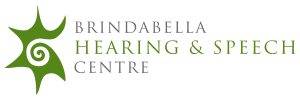

Cognitive deficits, dysarthria & apraxia
Cognitive / language deficits
After a traumatic brain injury or stroke, a person’s language or cognitive skills can be impaired. Cognitive areas affected may include: short-term memory; long-term memory; problem solving; reasoning; ability to answer questions appropriately; receptive or expressive aphasia (a loss of the ability to produce or comprehend language).
Dysarthria / apraxia of speech
These conditions can result from stroke and will affect an individual's production or clarity of speech.
Dysarthria affects the muscles of the mouth, face and respiratory system. Muscles may become weak, move slowly or not move at all after a stroke or other brain injury. The type and severity of dysarthria depends on the area of the nervous system affected.
Apraxia of speech, also known as verbal apraxia or dyspraxia, is a motor speech disorder caused by damage to parts of the brain related to speaking. People with apraxia of speech have difficulty sequencing the sounds in syllables and words. The severity depends on the nature of the brain damage. Apraxia of speech can also occur as a speech disorder in young children.
What we offer
Assessment
Suitable for:
Anyone aged 3+ with concerns about memory, problem solving or language difficulties.
Duration:
60 minutes
Prior to the appointment:
No referral necessary. You will be sent a questionnaire to complete prior to the appointment.
During the appointment:
An objective assessment by one of our university qualified and professionally active Speech Pathologists will provide you with an understanding of your condition and, if warranted, treatment options available. You will have an opportunity to have any questions answered.
What you walk away with:
You - and your doctor if this was a referral - will be delivered a comprehensive report following the assessment.
Booking information:
Visit our appointment page for costs and an online booking form.
Therapy
Suitable for:
Only those who have previously undergone a speech assessment with Brindabella Hearing & Speech Centre.
Duration:
45 minutes
Prior to the appointment:
As explained by your Speech Pathologist during the assessment or previous therapy session.
During the appointment:
Your Speech Pathologist will work with you one-on-one through a set of pre-defined exercises tailored to your individual needs.
What you walk away with:
No report is provided at therapy sessions, however ongoing feedback on your progress is provided verbally. Should you or your doctor require a written report at any stage this can be arranged, in which case the therapy session will be charged at the speech assessment rate.
Booking information:
Visit our appointment page for costs and an online booking form.

